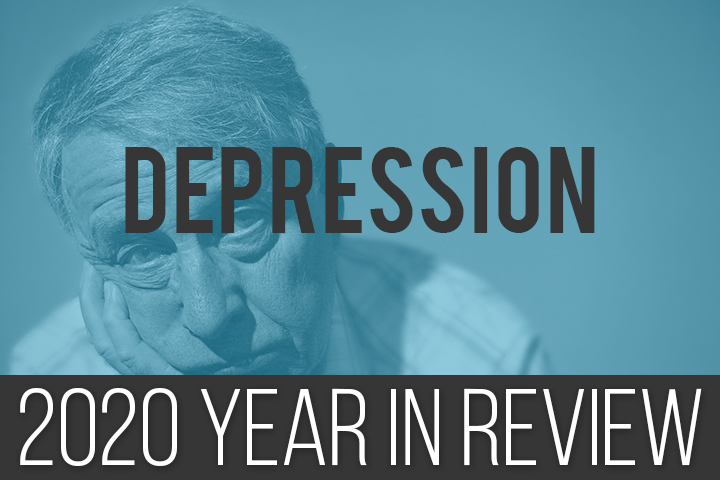With this year’s COVID-19 pandemic, a major shift in focus has been placed on America’s mental health.
According to CDC data released in August, almost 11% of American adults seriously contemplated suicide in June, and nearly a third reported symptoms of anxiety or a depressive disorder.
To put this into context, comparative data from the 2019 National Health Interview Survey reported that only 18.5% of American adults had major depressive symptoms prior to the pandemic. This particular survey found women were more likely than men to receive mental health treatment, while young adults ages 18 to 29 had the highest rates of major depressive disorder out of any age group.
Not only are symptoms of major depression far more prevalent during the pandemic, but the severity of symptoms has also increased. Compared with 2017-2018 National Health and Nutrition Examination Survey data, adults reported a significant uptick in mild, moderate, and severe major depressive symptoms this year.
With this rise in major depressive disorder instigated by the pandemic, the antidepressant sertraline (Zoloft) was even added to the FDA’s shortage list early in June.
New Treatment Developments
With these new threats against mental health, development of new major depressive disorder treatments is needed now more than ever.
Early in August, Janssen’s hotly debated esketamine (Spravato) gained a new indication approved by the FDA. First approved in March 2019, the nasal spray used as an adjunct with an oral antidepressant was originally indicated for treatment-resistant depression. This year, its label was expanded to include an indication for major depressive disorder with suicidal ideation or behavior based on the phase III ASPIRE studies.
Although not yet FDA approved, new JAMA Psychiatry research suggested synthetic psilocybin — the compound naturally occurring in magic mushrooms — may be a promising treatment for major depressive disorder. In November 2019, the FDA granted Breakthrough Therapy Designation for psilocybin in the treatment of major depressive disorder.
Published in November, the small trial of 24 patients with major depressive disorder found that psilocybin plus psychotherapy significantly reduced GRID-Hamilton Depression Rating Scale scores after only 1 week of treatment versus a waitlist control group that received the intervention after an 8-week delay (8 vs 23.8, P<0.001).
New research advancements were also achieved in postpartum depression. In a phase III trial presented at this September’s virtual Psych Congress meeting, 30 mg of daily zuranolone — an investigational oral GABA-active agent — significantly reduced symptoms of postpartum depression after 2 weeks of treatment. The study included 151 women who were maximum 6 months postpartum. Earlier this year, the developer Sage Therapeutics announced that the FDA granted this agent Breakthrough Therapy Designation for the treatment of postpartum depression and major depressive disorder.
Pharmacological agents weren’t the only advancements seen this year, as an accelerated, high-dose transcranial magnetic stimulation therapy helped significantly reduce symptoms of treatment-resistant depression in a small study reported in the American Journal of Psychiatry.
Looking at 21 adults who underwent this therapy, depressive symptoms significantly improved by a mean of 5 points on the Montgomery-Åsberg Depression Rating Scale (MADRS) after only 5 days of treatment. A total of 90% of the study subjects were able to achieve at least a 50% reduction in MADRS score and 70% were able to maintain this treatment response 1 month after treatment.
Depression Treatment Flops
In July, the phase II CLARITY trial found that the atypical antipsychotic pimavanserin (Nuplazid), already approved for the treatment of Parkinson’s disease psychosis, failed as an adjunctive treatment for major depressive disorder. The maker Acadia Pharmaceuticals announced that 34 mg of once-daily pimavanserin as an adjunctive treatment to standard antidepressant therapy failed to reach the primary endpoint of a significant total score change on the Hamilton Depression Rating Scale after 5 weeks.
However, on the other hand, pimavanserin did succeed as a treatment for improving symptoms of dementia-related psychosis in the phase III HARMONY study.
Earlier this year, the ASPREE trial published in JAMA Psychiatry found that low-dose aspirin was of no help in preventing depression among older adults. The large trial of nearly 20,000 adults ages 65 and older showed that 100 mg of daily aspirin failed to lower the incidence of depression versus placebo.
In a similar vein, a substudy of the VITAL trial published in JAMA this August found that vitamin D supplementation failed at reducing the risk of major depression in middle-age and older adults. Looking at over 18,000 adults ages 50 and older, 2,000 IU/day of cholecalciferol vitamin D supplementation didn’t help to significantly lower the risk of incident or recurrent depression compared with placebo.
Other notable headlines in major depression this year:
Last Updated November 17, 2020

![author['full_name']](https://doctor-robert.com/wp-content/uploads/2021/03/kristenMonaco_188.jpg)